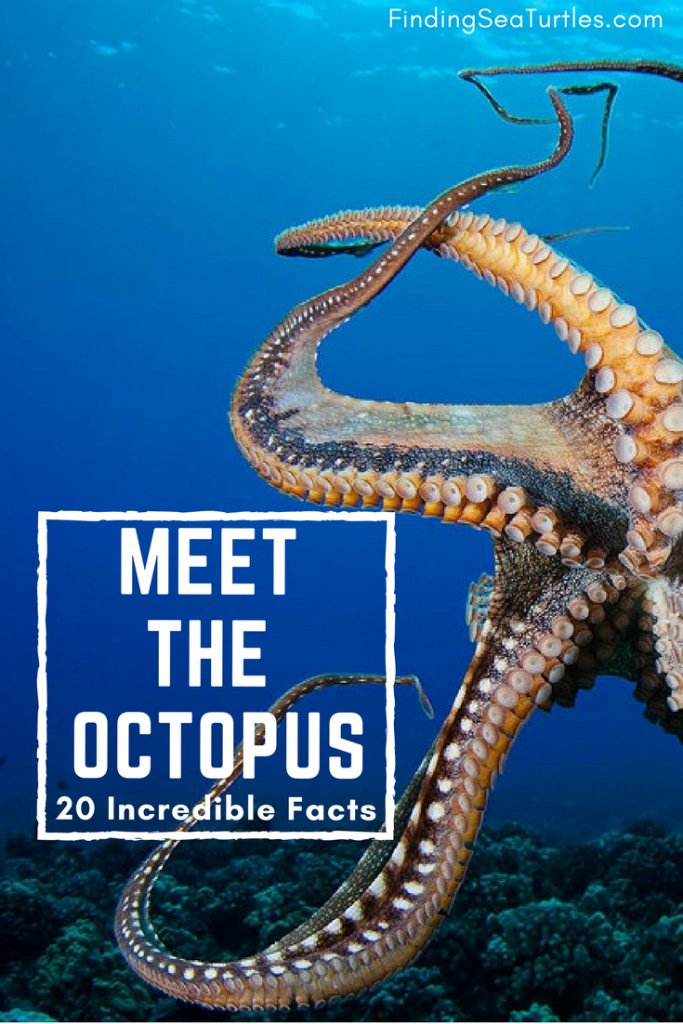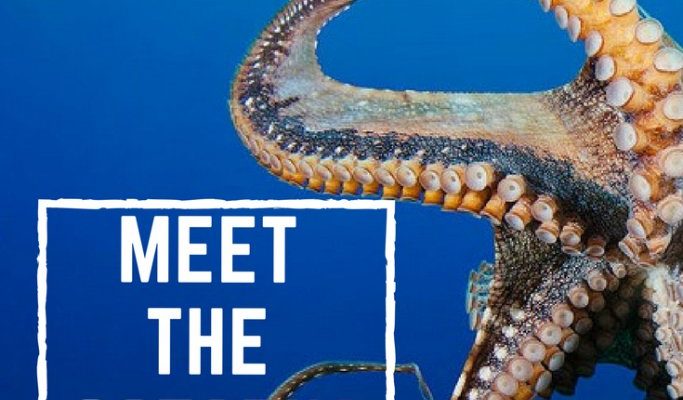
As we dive into the world of octopuses, you might find yourself learning something new about these intelligent sea dwellers that you never thought you’d encounter. From their anatomy to their behaviors, octopuses have a lot more going on beneath the waves than you might expect. Let’s take a deeper look at these amazing animals, shall we?
1. Octopuses Have Three Hearts
Here’s the thing: octopuses are unique in many ways, and one of the most surprising features is their *three hearts*. Two of these hearts pump blood to the gills, where it picks up oxygen, while the third heart sends that oxygen-rich blood to the rest of the body. It’s like having a personal delivery service just for oxygen!
But why three hearts? Well, it turns out that octopuses have a special type of blood, known as *hemocyanin*, which contains copper instead of iron. This helps them survive in the low-oxygen environments of the ocean. When an octopus swims, it actually stops the heart that delivers blood to the body, which is why you might see one moving slowly across the sea floor instead of darting through the water like a fish.
2. Master of Disguise: Color Change
Ever watch an octopus blend into its surroundings? It’s like watching a magician perform a trick! Octopuses can change their skin color and texture to camouflage themselves against rocks, coral, or even sand. This ability is possible thanks to specialized cells in their skin called *chromatophores* that expand or contract to reveal different colors.
This skill isn’t just for hiding from predators—it’s also a form of communication. When an octopus is excited or threatened, it might flash bright colors as a warning. Imagine having your mood reflected in your skin! This remarkable talent also makes them incredibly hard to spot in their natural habitats. So, if you’re ever snorkeling and you think you see an octopus, take a closer look!
3. They Have Incredible Intelligence
Octopuses are often considered one of the smartest invertebrates in the ocean. Their brains are large for their body size, and they’re capable of complex behaviors. For example, they can solve puzzles, escape from enclosures, and even use tools!
Imagine an octopus figuring out how to open a jar just to get to a tasty treat inside. Studies have shown that they can learn through observation, which means they can watch another octopus do something and then replicate it. They might not have formal education, but they’re quick learners who adapt easily to their surroundings. Isn’t it wild to think about a creature so seemingly simple executing such complex actions?
4. The Great Escape Artists
If you were to ask an octopus about freedom, it might just respond with a daring escape! These creatures are known for their incredible ability to squeeze through tight spaces. An octopus’s body is mostly soft and boneless, which allows them to slip through any gap larger than their beak.
Picture this: you’re at an aquarium, and you see an octopus in a tank. But then, poof! It disappears through a small hole barely the size of a penny. They often use this escape ability to get out of predators’ reach or to explore new areas. So, next time you’re at an aquarium, keep an eye on the tank—you never know when an octopus might pull off its next great escape!
5. They Can Regrow Lost Arms
You might be surprised to learn that octopuses can regenerate their arms. If they lose a limb to a predator (which is unfortunately common), they can regrow it over time. This isn’t just a neat party trick; it’s a vital survival skill.
The process can take several months, and the new arm may not look exactly like the original at first. However, it eventually becomes fully functional and can even regain the ability to taste and feel. Imagine losing a finger but having it grow back stronger! This ability not only helps them escape predators but also allows them to keep foraging for food even after losing a limb.
6. Octopuses Have Unique Mating Rituals
Octopus mating can be quite dramatic and unusual. The male octopus often uses a special arm called a *hectocotylus* to transfer sperm to the female. It may seem straightforward, but it’s also a risky venture. After mating, many female octopuses lay thousands of eggs and then devote themselves entirely to caring for them.
Unfortunately, this intense maternal care comes with a heavy price. While she tends to her eggs, she often stops eating altogether and eventually dies after the eggs hatch. It’s a bittersweet ending, as this dedication ensures the survival of her young.
7. They Have Ink for Defense
One of the most iconic traits of an octopus is its ability to squirt ink. When an octopus feels threatened, it can release a cloud of dark ink into the water, obscuring its escape route. This ink isn’t just a distraction; it also contains compounds that can confuse predators.
Imagine you’re walking down a dark alley, and suddenly, someone throws up a smoke bomb. You’d likely be disoriented and unsure of where to go! This is exactly how an octopus can slip away unnoticed, giving it a second chance to escape danger.
8. They Have Short Lives
Despite being fascinating creatures, octopuses generally have relatively short lifespans. Most species live only 1 to 2 years, with some rare types living up to 5 years or slightly more. This short lifespan is typically due to their reproductive cycle and the stress of their lifestyles.
After mating, it’s common for the female octopus to die soon after. Even the males usually don’t survive long after reproduction. It’s a life that’s intense and filled with mystery, but it ends rather quickly.
9. Octopus Eyes: Unique Vision
Did you know that octopuses have some of the most unique eyes in the animal kingdom? Their eyes are similar to those of humans, but the differences are fascinating. Octopus eyes provide a wide field of vision and can see in color, allowing them to navigate their vibrant underwater world.
However, their eyes are not connected to their brains, which results in a different way of processing visual information. Instead of seeing things the way we do, they rely on their keen sense of touch and changes in water pressure to help them understand their surroundings. It’s a unique way of perceiving the world, making them truly one-of-a-kind in the animal kingdom.
10. They Live in Various Habitats
You might think that octopuses only inhabit coral reefs or open oceans, but they actually live in a variety of environments! From rocky shores to deep-sea caves, octopuses adapt to many different habitats. Some even make their homes in discarded shells or old shipwrecks.
This adaptability is one of the reasons you find so many species of octopus around the world. Each type has evolved to thrive in its specific environment, showing just how diverse and resilient these creatures are.
In summary, octopuses are truly remarkable animals that continue to surprise and fascinate us. From their three hearts to their ability to regenerate, they embody mysterious beauty and unfathomable intelligence. Next time you think of the ocean’s inhabitants, remember how special these amazing creatures truly are!

